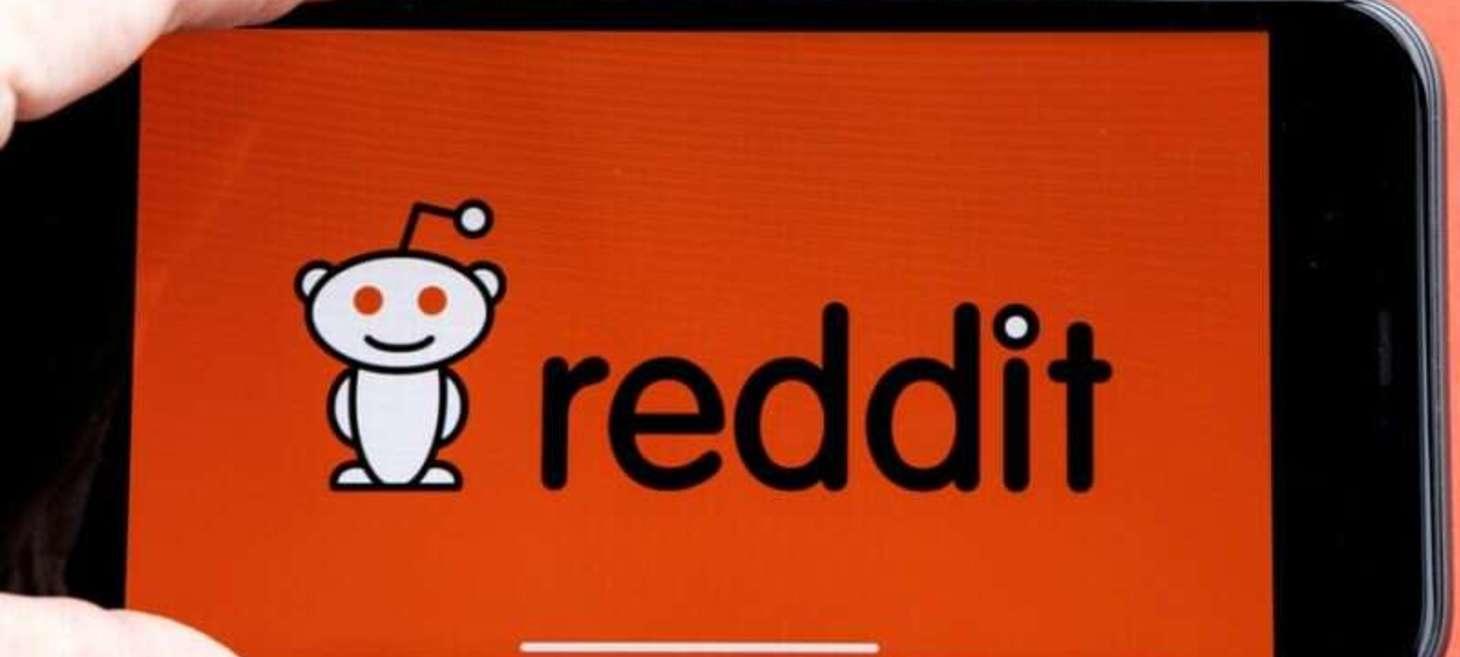 Welcome
Welcome
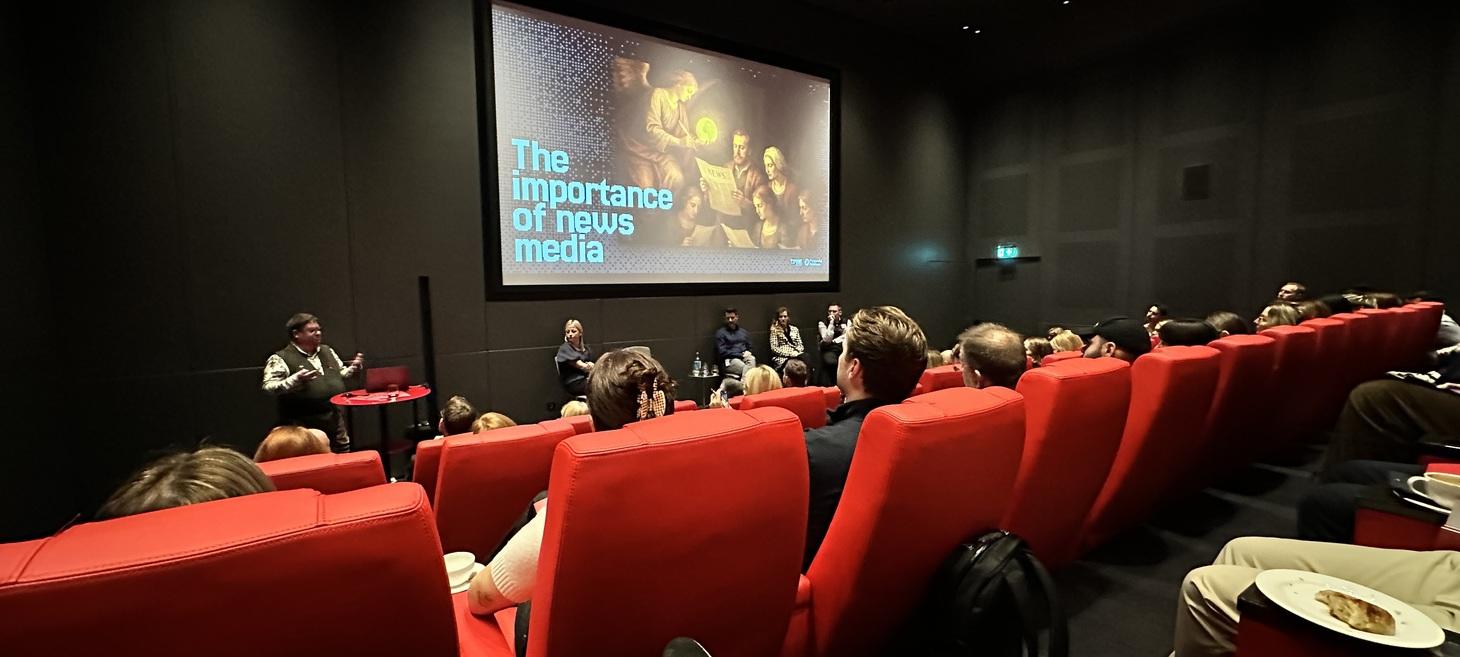
Yes, we're a day late but for a good reason. We wanted to time this issue of PR Futurist with the launch of two important white papers. Right now I'm on stage in Shoreditch in front of an audience of 100 senior PR and comms professionals to launch our Traditional Media’s Influence in the Age of AI white paper in partnership with 72Point.
Traditional Media’s Influence in the Age of AI combines a poll of 5,020 consumers with an in-depth analysis of multiple research reports on the impact of generative AI answers. It finds that the British public trust mainstream media and AI more than government, social media influencers or even their own friends and family.
Nearly half (44%) of those polled believe AI will give them more truth and facts than other sources. Two thirds (71%) say they are confident in AI answers.
More people trust AI than social media
What's striking is that social media influencers are the least trusted group with an overall rating of 24%. Yet PR and marketing teams continue to pour millions into working with influencers while underestimating the power of earned media and necessity of AI generative engine optimisation (GEO).
The main reason why comms leaders are hesitant about GEO is confusion. It is riddled with hype with report after report providing different data and contradictory advice. Our Impact of Generative Relations and Communications white paper cuts through the hype by analysing hundreds of pages of reports and thousands of data points to identify common themes and eliminate contradictions.
The result is 12 actionable insights that communications leaders can use to modernise and improve their communications strategies and plans for 2026. Download both white papers now and book a meeting to discuss what it means for you.
In this issue we've also got some other great articles such as Getty losing its AI copyright claim, can Cindy Rose save WPP, what does the UK's new AI minister really think, do PRs need to give up and become dredgers, Simon Baugh's rellections on five years heading up GCS and should journalists be given top comms jobs?
 News
News
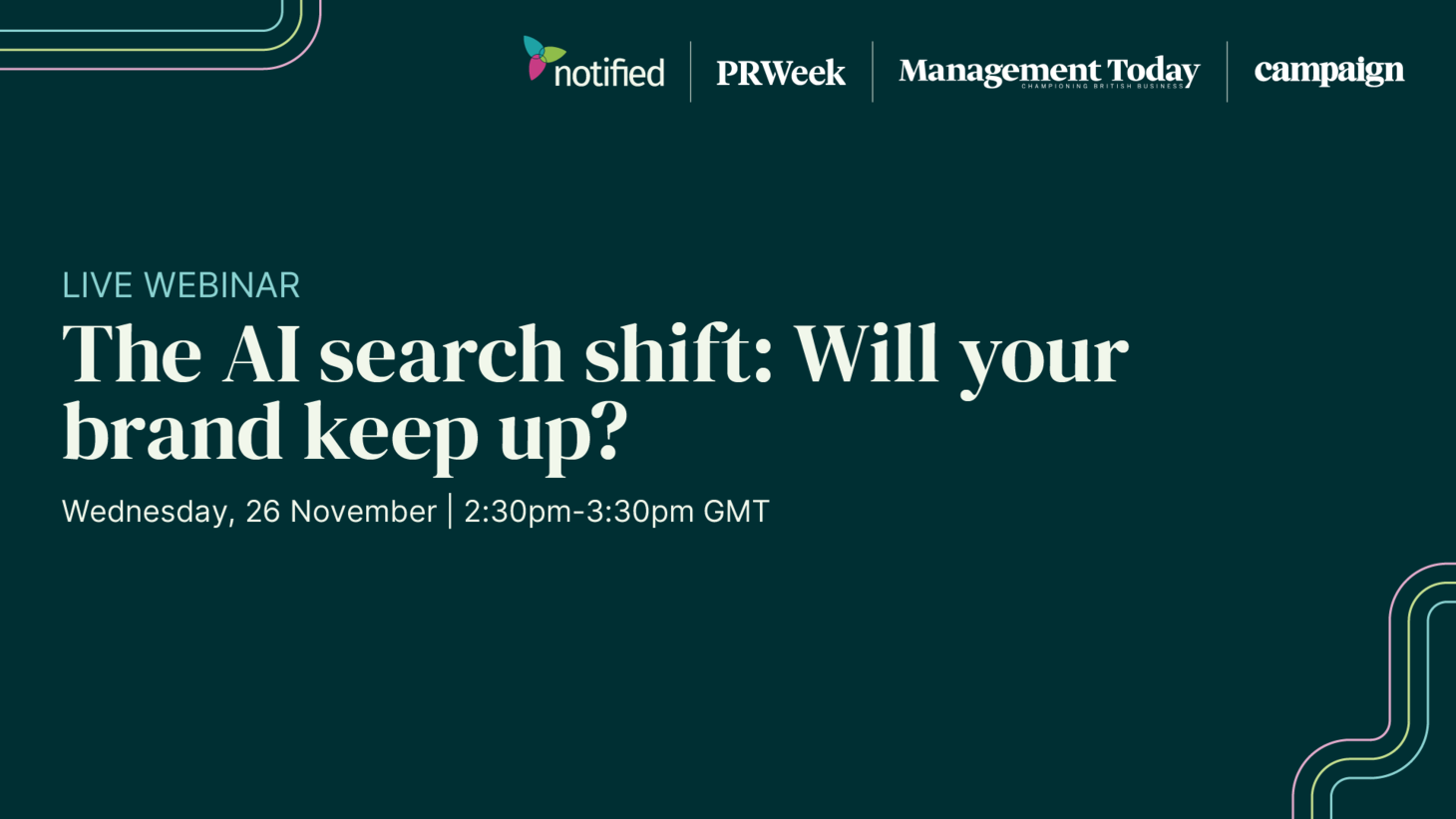
PRWeek webinar on the AI search shift
As well as reading our new white papers on how AI is changing the landscape for brands and reputation why not sign up to The AI search shift: Will your brand keep up? webinar with PRWeek, Campaign and Management TToday.
It's not until 26 November, but is so popular it's not far off 1,000 sign-ups already. I'll be on an expert panel alongside Sarah Salter, Vice President, global partnerships and AI innovation at WPP and Jamie Brader, Commercial Director at Notified.
 AI
AI
Getty loses AI copyright claim
One of the many social licence for AI issues is the thorny issue of copyright and intellectual property. This matters because the outcome of this and simiar cases sets important precedents on copyright and fair use in generative AI, directly shaping how brands can safely create and share AI‑generated content without risking legal or reputational fallout.
If AI models are trained on copyright material are they breaching intellectual property protection. Publishers tend to say yes. AI companies tend to say no.
The Guardian reports the Getty vs. Stability AI high court ruling as a victory for the AI company. It's not quite that straightforward as Getty withdrew some of its original claim and the judge ruled on different parts of the case.
The reality is that AI companies need strong, healthy creative, news and media companies to feed their voracious appetite for content. Our Traditional Media’s Influence in the Age of AI and Impact of Generative Relations and Communications white papers show that AI companies need publishers so would be foolish to usher their demise.
In a private conversation an insider has told me they think it increases the liklihood of more publishers signing deals with AI companies as both sides see the need to compromise and collaborate.

Can Cindy Rose steer WPP through the gargantuan changes of the AI revolution?
This is a great Substack piece by Danny Rogers on the challenges facing Cindy Rose as she tries to reshape WPP. There is an inherent contradiction between running a SaaS platform and running a people focused strategy and creative business. The danger is the more the first succeeds, the more the people will walk.
Bloomsbury boss says AI beats writer's block
Are authors doomed because of AI? Quite the contrary, the boss of Bloomsbury thinks authors will come to rely on artificial intelligence to help them beat writer's block.
Nigel Newton, the founder and chief executive of the publisher behind the Harry Potter series, told the PA news agency that AI could support most creative arts, although it would not replace great writers.
“I think AI will probably help creativity, because it will enable the eight billion people on the planet to get started on some creative area where they might have hesitated to take the first step,”
The reality is lots of prominent authors have worked with co-authors for years to pump out even more of their popular books. James Patterson is probably the most prolific. He sketches out ideas, plots and characters and then it's over to a co-author to actually write the manuscript. Some, like Clive Cussler, who've sketched out ideas before their demise continue to 'write' after their deaths.
It's not hard to envisage AI being used in a similar way to co-author novels. Especially for prolific authors where the AI can be trained on a huge volume of their original works so it more accurately reflects the nuances of their tone and style.
Top AI companies offer free AI in India
I love working in India. On several trips to work with Indian companies and speak at conferences I've been blown away by how innovative they are and at the astounding talent of Indian PR professionals.
In India OpenAI, Google and Perplexity are all offering free AI via mobile phone networks. I'm not surprised to see AI companies targeting India as a huge growth market. India has a huge population and millions of incredibly educated talented people.
As the UK trundles along and struggle with AI adoption and challenges of social licence for AI I think we'll see some amazing AI innovation coming out of India in the next few years.
 Corporate affairs
Corporate affairs
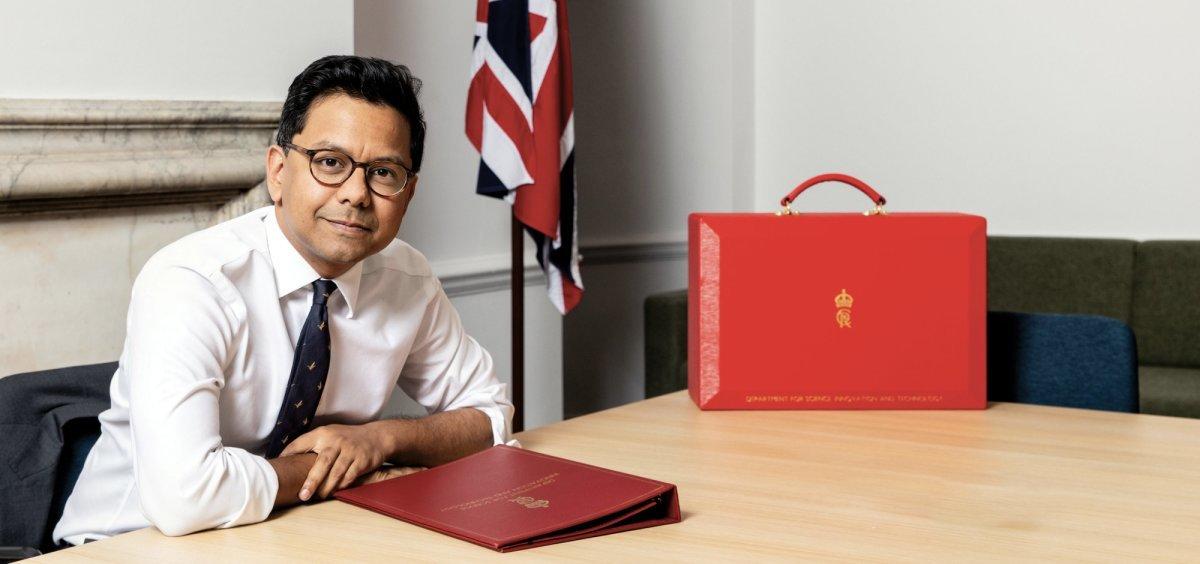
UK's new AI minister Kanishka Narayan wants to go further and faster
Interesting interview with Kanishka Narayan, the UK's new AI minister, in which he talks about the need to build trust and create agency for AI's adoption. This is something I'm constantly stressing as not enough corporate affairs leaders grasp the importance of social licence for AI.
It's not enough just to focus on AI adoption for the comms team, it's about ensuring your stakeholders understand and trust your company's use of AI. Even if AI use is limited or slow it's still critical to ensure social licence for AI as AI's use by competitors, peers and suppliers will impact on you.
 CommTech tools
CommTech tools
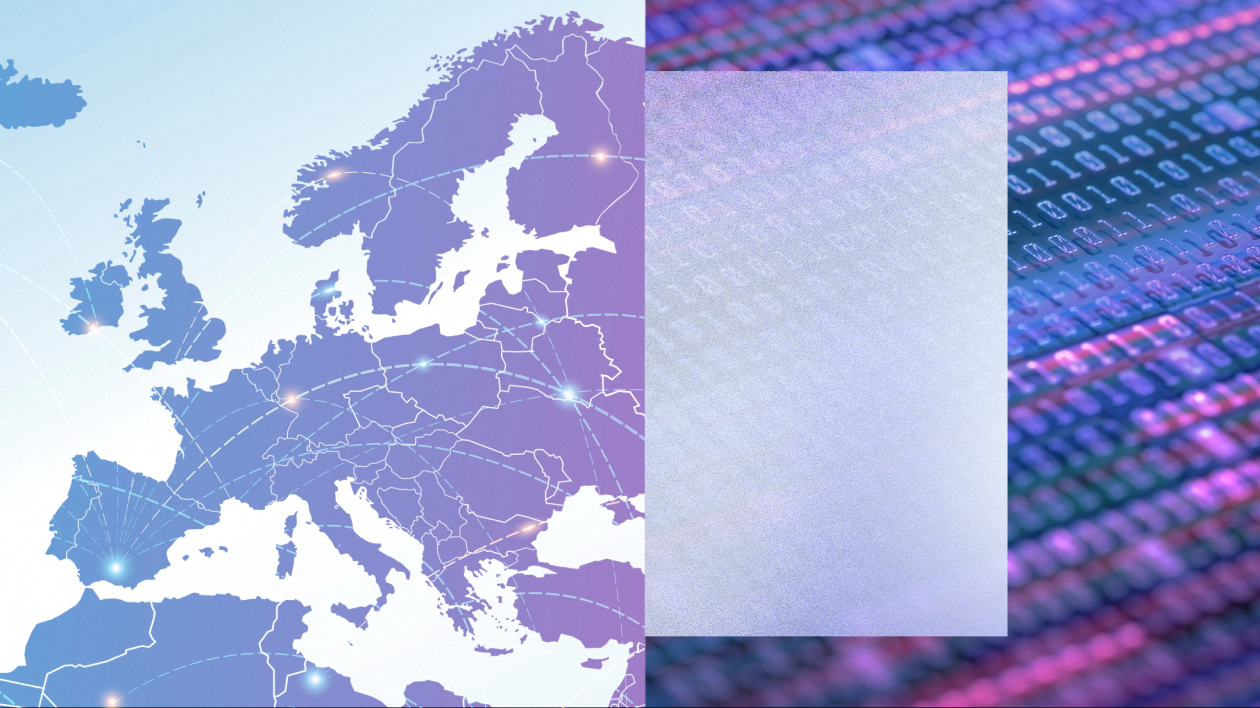
Microsoft provides in-country processing for Copilot
One reason for Microsoft 365 Copilot being popular in the public sector and corporates is its enterprise level data security and privacy. Microsoft is improving this again by adding new countries for processing data so customers can ensure native data sovereignty.
By the end of 2025, Microsoft will offer customers in four countries—Australia, the United Kingdom, India, and Japan—the option to have Microsoft 365 Copilot interactions processed in-country. In 2026, it will expand this to customers in eleven more countries including Canada, Germany, Italy, Malaysia, Poland, South Africa, Spain, Sweden, Switzerland, the United Arab Emirates, and the United States.
Microsoft is pleased to announce that we are making in-country data processing for customers’ interactions available in 15 countries.
 Case studies
Case studies
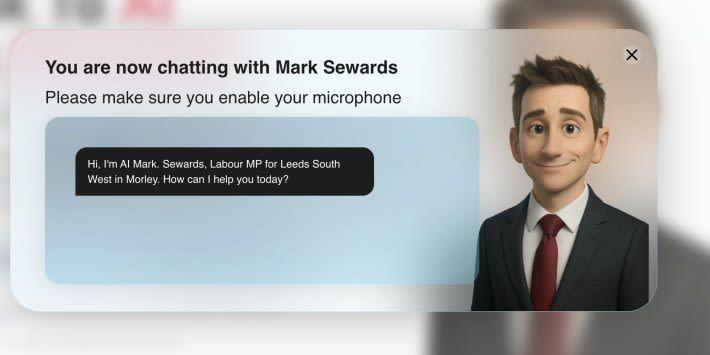
The inside track on the highs and lows of AI Mark the world's first AI MP
In issue 114 of PR Futurist we told you about my friend Mark Sewards who created a virtual version of himself to become the UK's first AI MP. In this article in The House magazine Mark share his experiences of being the world's first "robo-MP".
He talks openly about why he did it (because he's a fantastic innovative MP and to help a start-up in his constituency). He also shares the challenges such as a persistent person in Ukraine who tried to get AI Mark to declare support for a repressive regime. AI Mark held firm to his (and the real Mark's) love for democracy.
Despite the social media outrage many of Mark's constituents welcomed him backing a local business and have asked AI Mark local questions about potholes, street lights and housing.
 Research and reports
Research and reports
Yet another generative AI tracking report
I've got to confess I panicked when James Crawford at PR Agency One sent me a link to Prove me wrong: From GEO to reality – redefining PR measurement in the age of AI-led discovery, his new report on tracking brand visibility in AI large language models. It sounded a bit too much like the white paper we're launching on Tuesday. What if his contradicted ours? What if his was better?
I needn't have worried. It's an excellent report that make much the same points as we do in our two white papers. It's complementary and well worth reading all three if you want to differentiate the GEO hype from the reality of what we all need to be doing.

Afraid of AI? Forget PR and become a dredger
Another day and another report which tries to identify the jobs most impacted by AI. This time it's from Microsoft and public relations specialists appear mid-table with interpreters and translators at the top with dredge operators at the bottom.
But before you start retraining as a dredge operator you should note that the paper is about which jobs are highly exposed to AI and as a "language heavy" profession PR will be massively transformed.
Interpret this as meaning if you use AI to help you improve productivity and performance then your job is safe. If not then become a roofer, motorboat operator or housekeeper cleaner are alternatives to becoming a dredge operator.
The report opens as a PDF as an academic paper.
Photo by David Kanigan: Barge and Dredging Equipment at Twilight in Stamford.
 Professional practice
Professional practice
Should top comms jobs go to journalists?
As the chief operating officer at News UK and former Sun editor David Dinsmore becomes the new permanent secretary of government communications InComms asks if it's right that top comms jobs should go to journalists. It invites top PR and comms experts to share their thoughts.
You've probably guessed this is a QTWTAIN headline (Questions To Which The Answer Is No).
Experts consulted included Anne Gregory, professor emeritus and professor of corporate communication at the University of Huddersfield, ex-president of the CIPR and Purposeful Relations global advisory board member; Gabriela Weiss Clarke, head of communications, PRCA; Gavin Ellwood, executive chair at Ellwood Atfield; Alastair McCapra, chief executive, CIPR; Stephen Waddington, director, Wadds Inc and ex-president of the CIPR and Mandy Pearse, director of Seashell Communications and former CIPR president.
This was my quote:
“Journalism can be an excellent background for public relations, but journalists (no matter how senior) shouldn't jump straight into the top job. There needs to be a transition period where they learn, study, train and gain experience about public relations and communications.
“With regard to David Dinsmore I don't know him personally, but do know people who do. By those accounts he's an excellent operator, both when he was editor of The Sun and as COO of News UK.
“However, leading a team of 7,000 communications professionals and ensuring GCS maintains its lead as the world's foremost government communications service might require a different skill set. The previous role holders ensured GCS was a world leader in comms planning, measurement and evaluation under Alex Aiken, and in using AI for comms under Simon Baugh. Both were comms professionals before taking the role. Dinsmore's challenges going forward are likely to be overcoming public distrust and combatting disinformation and misinformation.
“It's not a role where journalistic credentials are really relevant. It's also a neutral government role and not a political communications role so shouldn't have any impact on the government's political communication challenges and revolving door in the political comms role.”
Simon Baugh's reflections as he completes his GCS leadership stint
David Dinsmore takes over as head of the UK Government Communication Service from Simon Baugh who held the role for five years. As he steps down Helen Dunne of Corporate Affairs Unpacked sits down with Simon to share his thoughts and experiences. Well worth a read.
Discover Simon Baugh's transformative insights from four years leading UK Government Communications, revealing strategic communication evolution in the modern media landscape.

